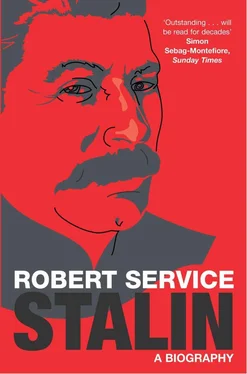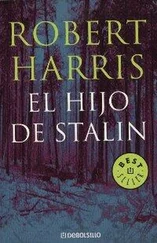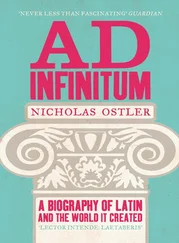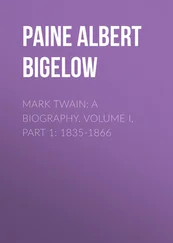There was a nationalist edge to Joseph’s poems even though he restrained himself in order to avoid annoying the Tbilisi censor. His images were those of many writers in the oppressed countries of Europe and Asia of that time: mountain, sky, eagle, motherland, songs, dreams and the solitary traveller. The closest he came to disclosing his political orientation was in an untitled work dedicated to ‘the poet and singer of peasant labour, Count Rapael Eristavi’. For Joseph, Eristavi had identified himself with the plight of the poor toilers of the Georgian countryside. 24
Not for nothing have the people glorified you,
You will cross the threshold of the ages —
Oh that my country might rise.
Eristavi, born in 1824, was an ethnographer and folklorist as well as poet. His focus on the need for social and economic reform made him an unmistakable opponent of the status quo in the Russian Empire. According to one of Joseph’s fellow seminarists, the poem dedicated to Eristavi was interpreted as revolutionary in content. 25This may be an exaggeration. But Joseph was undeniably offering a work intended to criticise the status quo.
The legend of a rejected Georgian youth was a figment of Stalin’s imagination. He was welcomed by the Georgian cultural elite. As soon as he left Gori, there was no going back except for holidays. Tbilisi offered the promise of realised ambition. His friends, whether they had come from rich or poor backgrounds, felt the same. They had an eagerness to make a mark in the world outside the town of their birth.
Stalin later made out that he and his comrades crept into Chichinadze’s shop and, short of funds, surreptitiously copied out the forbidden texts into their notebooks. Supposedly they did this in relays to relieve the pain to their hands. A less likely situation is hard to imagine in a well-ordered enterprise. (Not that this has stopped biographers from taking the story at its face value.) Chichinadze was on the side of those who opposed the Russian establishment in Tbilisi. When the seminarists came on to his premises, he surely greeted them warmly; and if copying took place, it must have been with his express or implicit permission. 26The spread of ideas was more important to the metropolitan intellectual elite than mere profit. It was a battle the liberals could scarcely help winning. Chichinadze’s shop was a treasure house of the sort of books the youngsters wanted. Joseph Dzhughashvili was fond of Victor Hugo’s The Year Ninety-Three . He was punished for smuggling it into the Seminary; and when in November 1896 an inspection turned up Hugo’s Toilers of the Sea , Rector Germogen meted out a ‘lengthy stay’ in the solitary cell. 27
According to his friend Iremashvili, the group also got hold of texts by Marx, Darwin, Plekhanov and Lenin. 28Stalin told of this in 1938, claiming that each member paid five kopeks to borrow the first volume of Marx’s Capital for a fortnight. 29Much as they liked Ilya Chavchavadze and Giorgi Tsereteli, they were not in intellectual thrall to them. Some works by Marx and his followers were legally published in the Russian Empire. Others were passed secretly from hand to hand. The Orthodox Church had lost the contest to retain the loyalty of its livelier seminarists in the Georgian capital. The true struggle was among the various political and cultural trends outside the Seminary. Chavchavadze, a conservative reformer, hoped for a revival of national culture; Tsereteli, a radical liberal, aimed at basic socio-economic reform. By the 1890s, though, they were having to compete with advocates of diverse strands of socialism. Marxism was on the rise in Georgia and Joseph Dzhughashvili was already becoming attracted to its tenets.
As his time in the Tiflis Spiritual Seminary drew to an end, Joseph had become thoroughly alienated from the authorities. He had ceased to study hard from his second year when he became involved in writing and publishing. 30He was also drawing back from the world of literature. Despite the patronage of Ilya Chavchavadze and Giorgi Tsereteli, he no longer sought to be a poet. He tossed aside the opportunity to join the Georgian cultural elite. Instead he intensified his studies of socialism, politics and economics. Having hurtled like a small meteor across the Tbilisi literary scene in 1895–6, he just as suddenly disappeared. It would appear that he entirely stopped composing poetry. Few people apart from his publishers and his close friends at the Seminary had an inkling that he had ever published any. (When Yakob Gogebashvili reprinted ‘Morning’ in 1912, it was under the original pseudonym.) 31Dzhughashvili searched for a different way of life from the kind offered either by the priesthood or Tbilisi literary circles. His alter ego as a rough-voiced militant from the depths of society was beginning to emerge; and as far as most people knew, this persona was the only Dzhughashvili who existed.
He detested the disciplinary regime at the Seminary. On 28 September 1898 he was the centre of a group found to be reading prohibited material. Joseph had even taken notes on it. 32Inspector Abashidze, exasperated by infringements, reported:
Dzhughashvili, Iosif (V.I.) in the course of a search of the possessions of certain fifth-year pupils spoke out several times to the inspectors, giving voice in his comments to discontent about the searches conducted from time to time among the seminarists. In one of them he asserted that such searches were not made in a single other seminary. In general, pupil Dzhughashvili is rude and disrespectful towards persons in authority and systematically fails to bow to one of the teachers (A. A. Murakhovski), as the latter has frequently reported to the inspectors.
Reprimanded. Confined to the cell for five hours by order of Father Rector.
Joseph’s behaviour was almost asking for trouble and the Rector’s reaction aggravated the tension in the young man. It was only a matter of time before Joseph threw up his priestly vocation.
He stuck it out almost to the end of the course. There were pragmatic reasons for this. A piece of paper attesting completion of the seminary training, even if he declined to enter the priesthood, would have given him the qualifications (if he had the necessary money) to become a student in one of the Russian Empire’s universities. But Joseph had no private source of income and had no connection with any organisation which might support him. He would have to make his living for himself from scratch. Consequently his disappearance from the Tiflis Spiritual Seminary in May 1899, as the last examinations were about to be sat, was an act of existential choice. He left no explanation of his decision to the authorities. In later years he pretended that he had been expelled for carrying out ‘Marxist propaganda’; 33but the reality was that he had left of his own accord. His was a wilful spirit. He had lost his religious faith and was beginning to discover a different way of interpreting the world in Marxism. He was also impulsive. Joseph Dzhughashvili had had enough: he left the priestly environment on his own terms. Always he wanted the world to function to his wishes. If he left a mess behind him, too bad. He had made his decision.
He abhorred the Imperial authorities. He had national pride. In Tbilisi he responded to the intellectual effervescence of Georgian public life at the end of the nineteenth century. He already considered himself a man of outstanding ability. He had already shown his ambition by getting his poems published.
The contours of Joseph’s later personality were already disclosing themselves. He was dedicated to self-improvement through daily study. His capacity for hard work, whenever he thought such work was useful, was immense. The Imperial order had given him a usefully wide education, albeit an education underpinned by Christian liturgy and tsarist loyalism. He was literate and numerate; he had a pleasing style in poetry. In his spare time he had started to acquaint himself with broader ideas about society and to study Marxist texts. He also read Russian and European classic novels. He was obviously capable of going on to university and had an acute analytical mind. His problem was what to do with his life. Having abandoned Christianity, he had no career ahead of him; and his family lacked the resources and desire to enable him to enter an alternative profession. For the next few years he was to expend much energy trying to decide the fundamental question for rebels in the Russian Empire: what is to be done? Another question also exercised his mind: with whom to do it? Young Dzhughashvili, fresh out of the Tiflis Spiritual Seminary, had yet to formulate his answers.
Читать дальше












